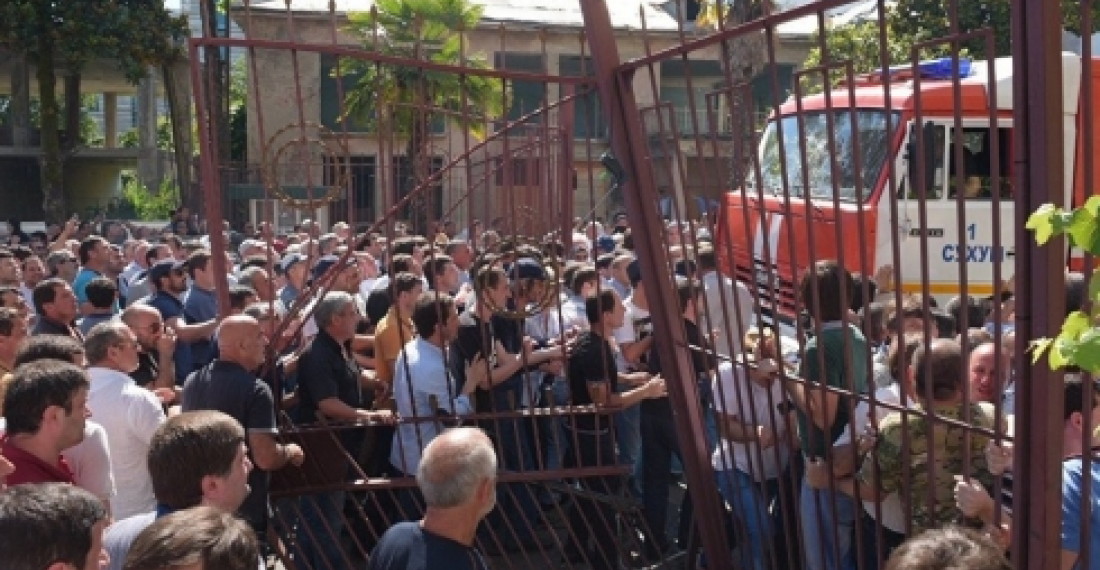- Armenia-Azerbaijan Strategic Expert Platform: Members emphasise the importance of the present moment for the South Caucasus and call for the momentum to be used for the long-term peace and prosperity of the region
- Thursday Interview: Dr. Anar Valiyev
- Food insecurity in Somalia has nearly doubled in the past year
- Türkiye evaluating potential measures in case of a US-Iran conflict
- European Parliament reaffirms support for Ukraine and EU Path
- EU moves ahead with Ukraine loan preparations despite Hungarian block
Protests in Abkhazia after interior minister resigns

Tensions in Abkhazia are running high ahead of a referendum scheduled for July 10 on the subject of early presidential elections. Raul Khajimba, president of the self-declared republic, has said he is ready for negotiations with the opposition, after a major protest in Sukhumi led to the resignation of the interior ministry.
"The situation has not yet been resolved," Khajimba told reporters on Wednesday. "The opposition has other demands."
The Interior Ministry building in Sukhumi was stormed by opposition Congress protestors. It is reported the protesters demanded the resignation of minister Leonid Dzapshba due to deterioration of law and order, and because of the ministry's attempts to influence the result of the referendum.
Local observors have said the president is taking a great risk in calling the referendum, at a time when the country is divided.
"The situation certainly remains within the field of our view, and the Kremlin is closely watching the developments there (in Abkhazia),"Kremlin spokesman Dmitri Peskov told reporters on Wednesday.
Source: commonspace.eu with with agencies
Photo: Protesters at the Ministry of Interior building in Sukhumi.








